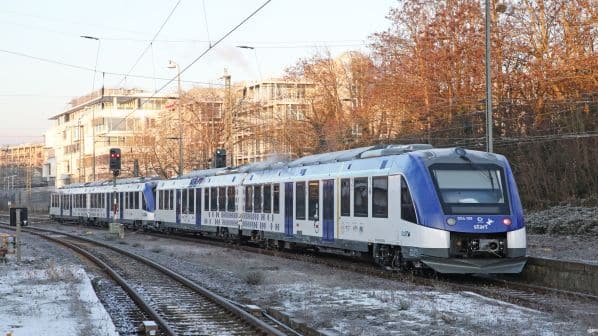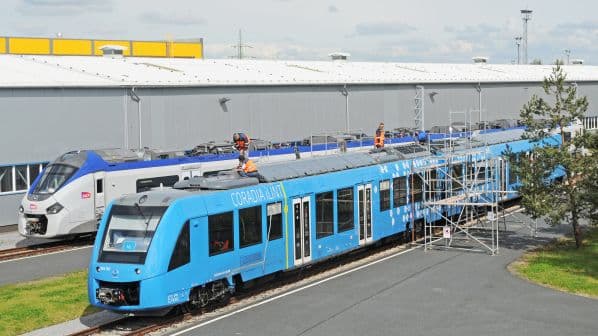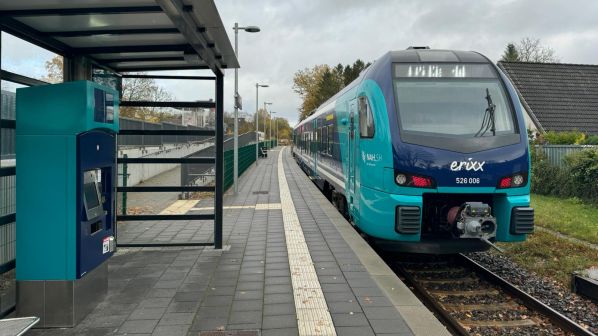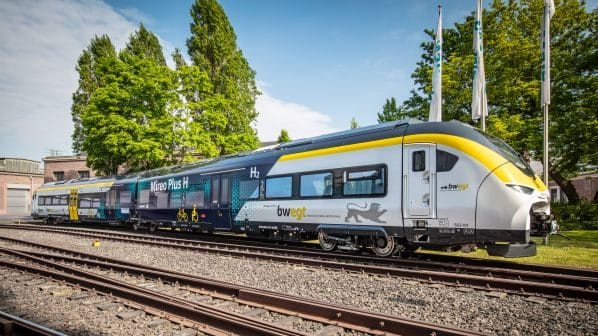GERMANY’s Federal Ministry of Digital Infrastructure and Transport (BMDV) has suspended funding for all new hydrogen-based projects. This move, reported in local media, follows suggestions of corruption relating to allocation of funding for individual projects. Some senior officials in the ministry have been assigned new jobs, while internal investigations are ongoing.
Whether the funding suspension will have much practical effect is unclear as, apart from the three initial hydrogen train fleets, there have been no new orders or proposals for hydrogen-powered passenger trains in Germany. Several German state transport authorities, including early adopter Lower Saxony, have made it clear they do not intend to pursue hydrogen-based rail projects.
Introduction and operation of the initial two fleets of Alstom iLint trains in Lower Saxony and Hesse has been affected by late delivery of trains and poor reliability in cold weather conditions. Both were supported by substantial federal subsidies when ordered between 2017 and 2021, as was the third project, the deployment of Siemens Mireo+H trains in Berlin-Brandenburg from this December.
Sales of hydrogen-powered trains in other European countries are similarly low, as capital and running costs for either battery EMU (BEMU) or conventional EMU trains are currently cheaper. Alstom undertook demonstration operation of its iLint prototypes in both Canada and Saudi Arabia in 2023, but has yet to announce any orders outside Europe.
Despite the decision to pause hydrogen funding, the German federal budget for 2024 includes an increased level of support for alternative rail traction of all types, with €88.8m available - an increase of €23.8m compared with 2023.
Most of the funds will support the introduction of multiple BEMU fleets across Germany, and specifically the installation of electrification islands, which provide overhead power for BEMU recharging on otherwise unelectrified routes.
For more details of projects across the globe, subscribe to IRJ Pro.




